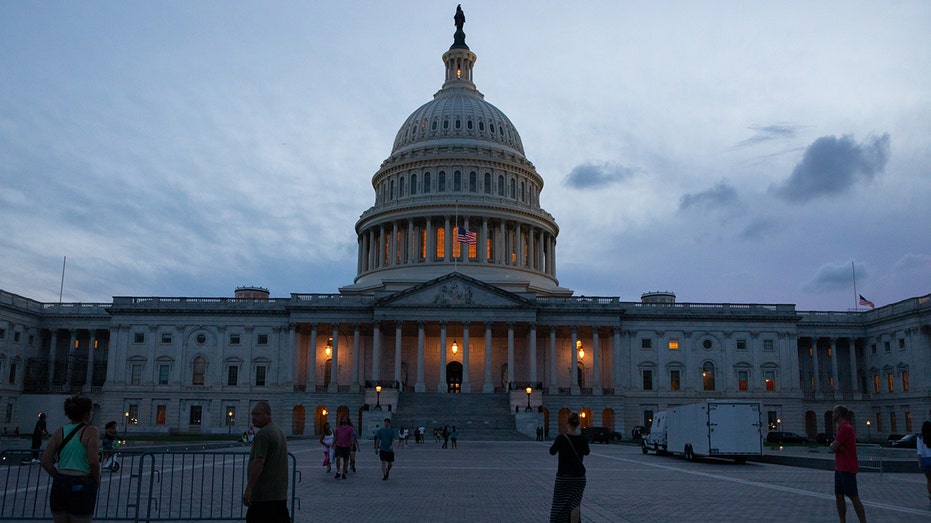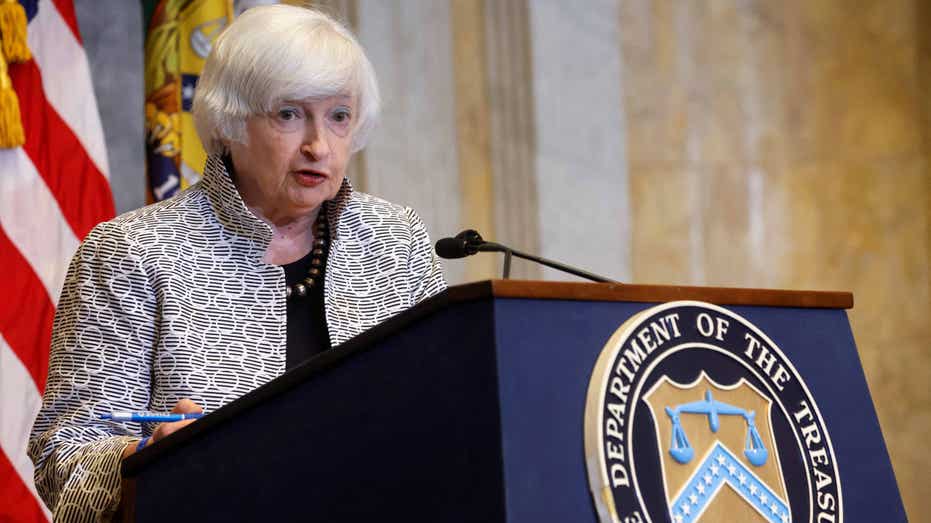US hits debt ceiling, threatening economic outlook
Congress last voted in December 2021 to lift the debt ceiling
Laffer: Going too far on debt ceiling will have huge negative consequences on economy
Former Reagan Economic Adviser Art Laffer arguing debt ceiling debate is 'primarily theatrics.'
The U.S. hit its debt limit on Thursday, forcing the Treasury Department to begin deploying a series of emergency moves so that the government can continue to pay its bills and endangering the already fragile U.S. economy.
In a letter to Congress, Treasury Secretary Janet Yellen said the department will start using so-called "extraordinary measures" to prevent the U.S. from defaulting on its obligation. But she warned that the moves are subject to "considerable uncertainty" when calculating how long they could keep the government afloat.
"The period of time that extraordinary measures may last is subject to considerable uncertainty, including the challenges of forecasting the payments and receipts of the U.S. Government months into the future," Yellen wrote. "I respectfully urge Congress to act promptly to protect the full faith and credit of the United States."
The debt ceiling, which is currently around $31.4 trillion, is the legal limit on the total amount of debt that the federal government can borrow on behalf of the public, including Social Security and Medicare benefits, military salaries and tax refunds.
US NATIONAL DEBT ON PACE TO BE 225% OF GDP BY 2050, PENN WHARTON SAYS

The U.S. Capitol building is seen on the evening of August 6, 2022, in Washington, D.C. ((Photo by Anna Rose Layden/Getty Images) / Getty Images)
The White House urged Congress to raise the debt ceiling "without condition." Failure to do so could be catastrophic, according to experts, who warn it could send the economy into a downturn.
"Without a debt limit increase, suspension or removal, we believe Treasury would look to prioritize debt payments leading to delays in some other payments," said Gregory Daco, chief economist at EY Parthenon.
"Still, in doing so, Treasury would need to balance the federal budget by ensuring that government outlays are equal to government revenues. This would mean an instantaneous cut to GDP worth around 4.5-5.0%, leading to a self-inflicted recession and risking severe financial market dislocations."

House Minority Leader Kevin McCarthy, R-Calif., speaks during a television interview as the House considers President Joe Biden's $1.85 trillion-and-growing domestic policy package, at the Capitol in Washington, Friday, Nov. 5, 2021. (AP Photo/J. Scott Applewhite / AP Newsroom)
The growing uncertainty over the debt limit comes after Republicans reclaimed the House majority, bringing to an end the one-party control enjoyed by Democrats over the past two years and threatening to revive a game of brinkmanship over raising or suspending the debt limit.
House Speaker Kevin McCarthy, who won the gavel after 15 rounds of voting by making compromises with some of the party's most conservative members, has indicated Republicans could push for spending cuts to the federal budget before helping to raise the debt ceiling.
LOOMING DEBT CEILING SHOWDOWN RISKS TRIGGERING 'SELF-INFLICTED' RECESSION FOR US ECONOMY
"Why a potential debt ceiling crisis? In trying to garner support for his election, House Speaker McCarthy provided conservative Republicans with a commitment to attach significant spending cuts to any increase or suspension in the debt limit," Daco said. "As such, while most policymakers would favor a clean raise in the debt ceiling, there is likely to be significant opposition to spending cuts by Democrats in the Senate."
Still, McCarthy, R-Calif., has said Republicans "don't want to put any fiscal problems through our economy, and we won’t." He has also not ruled out raising the debt limit, pointing to a debt ceiling deal struck in 2019 between President Trump and Speaker Nancy Pelosi.

Janet Yellen, pictured here holding a news conference in the Cash Room at the U.S. Treasury Department in Washington, U.S. July 28, 2022. (REUTERS/Jonathan Ernst / Reuters Photos)
"I had a very good conversation with the president when he called me, and I told him I'd like to sit down with him early and work through these challenges," McCarthy said last week at a press conference.
Congress last voted in December 2021 to lift the debt ceiling.
GET FOX BUSINESS ON THE GO BY CLICKING HERE
If the U.S. failed to raise or suspend the debt limit, it would eventually have to temporarily default on some of its obligations, which could have serious negative economic implications. Interest rates would likely spike, and demand for Treasurys would drop; even the threat of default can cause borrowing costs to increase, according to the Committee for a Responsible Federal Budget.
While the U.S. has never defaulted on its debt before, it came close in 2011, when House Republicans refused to pass a debt-ceiling increase, prompting rating agency Standard and Poor's to downgrade the U.S. debt rating one notch.





















